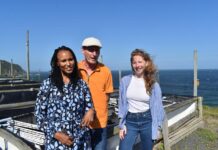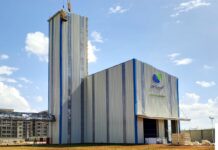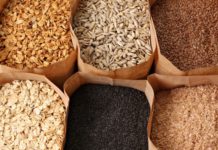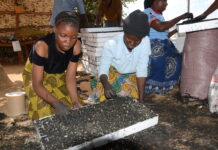The government of South Sudan has launched a 5-year US$33 million project to build long-term climate resilience within vulnerable agro-pastoral communities in a major move to combat the challenges posed by climate change and food insecurity.
Implemented by World Vision in collaboration with the UN Development Programme, the project will benefit approximately 75,000 people, more than half of whom are women. It focuses on watershed-based ecosystem restoration, climate-smart agricultural practices, diversified livelihoods, and strengthened market connections.
The project will also directly contribute to the sustainable management of 15,000 hectares of land in a region highly vulnerable to desertification.
“With the climate crisis intensifying, we are thrilled to see the launch of this crucial climate adaptation project (WACRESS) in Juba,” said Hon. Josephine Napwon, South Sudan’s Minister of Environment and Forestry.
“In partnership with the Global Environment Facility, the UN Development Programme, and World Vision, this project will directly enhance lives and livelihoods. It will also contribute to the three pillars of our National Adaptation Plan: building climate-resilient communities, developing a climate-resilient economy, and fostering a climate-resilient environment.”
He added that the government recognise that responding to climate change as well as restoring the ecosystem requires the collective efforts of all stakeholders, including the communities the state intends to serve.
“No single agency or ministry can handle it alone. Today, we are demonstrating our commitment to coming together to deliver on our objectives and promises,” said Napwon.
Climate-sensitive natural resources
Approximately 95 percent of South Sudan’s population depends on climate-sensitive natural resources, making them highly vulnerable to rising temperatures, erratic rainfall, and more frequent extreme weather events caused by climate change.
Farmers’ strategies to cope with environmental degradation have further depleted soils, leading to land conflicts. Extension agencies lack the capacity to support communities in adapting, and national agricultural policies and plans inadequately address climate change. Additionally, the absence of developed markets and disrupted value chains presents further challenges.
Prolonged periods of conflict have left the nation facing the highest levels of food insecurity globally.
Market linkages
The project will strengthen market linkages and agricultural value chains, equipping extension agencies to support farmers in adopting climate-smart practices like multi-cropping and new livelihoods such as beekeeping and kitchen gardens.
Farmer field schools and community-based organizations, including women’s self-help groups and farmer associations, will promote these new practices.
Recognizing the importance of ecosystems for livelihood security and disaster risk reduction, the project will implement watershed approaches integrating soil and water conservation, with communities leading the efforts.
Climate change intergration
The project will integrate climate change into national agriculture and natural resource plans, promoting collaboration and knowledge-sharing with other initiatives.
“The WACRESS project is pivotal for South Sudan,” stated Dr. Mesfin Lola, World Vision’s Country Director. “It aims for sustainable livelihoods to tackle hunger and malnutrition. Our goal is not just project success, but also opening doors for more opportunities in South Sudan. This is just the beginning of a transformative journey.”
“Climate change poses substantial challenges to societies, ecosystems, and economies worldwide,” emphasized Mr. Dominic Sam, UNDP Resident Representative in South Sudan. “Addressing these impacts requires collective action and international cooperation.”
The project is backed by a $10 million grant from the Global Environment Facility’s Least Developed Countries Fund, alongside in-kind assistance worth $17,209,211 from the Government of Sudan, plus a cash injection of $4,868,421 and contributions from other partners.








